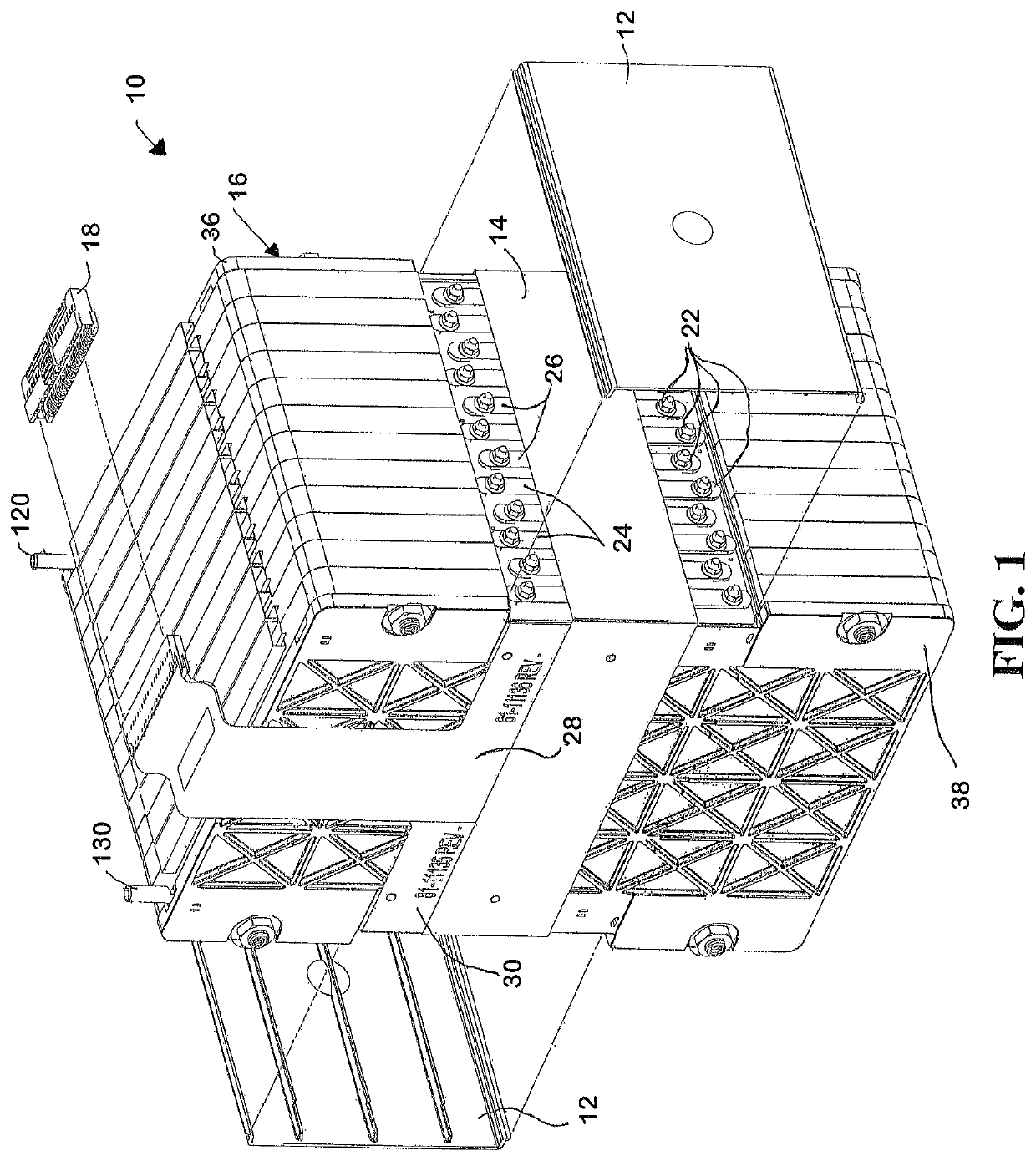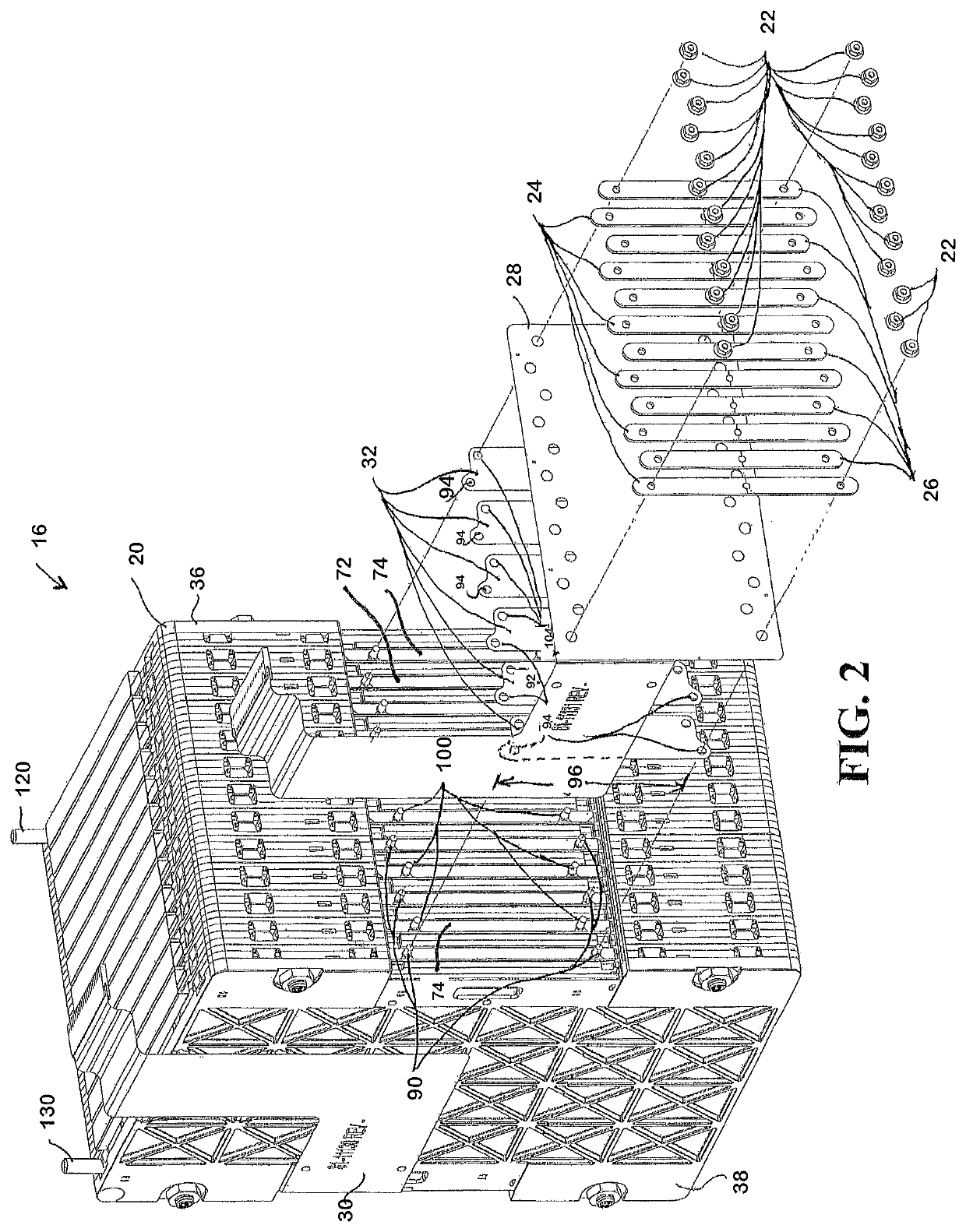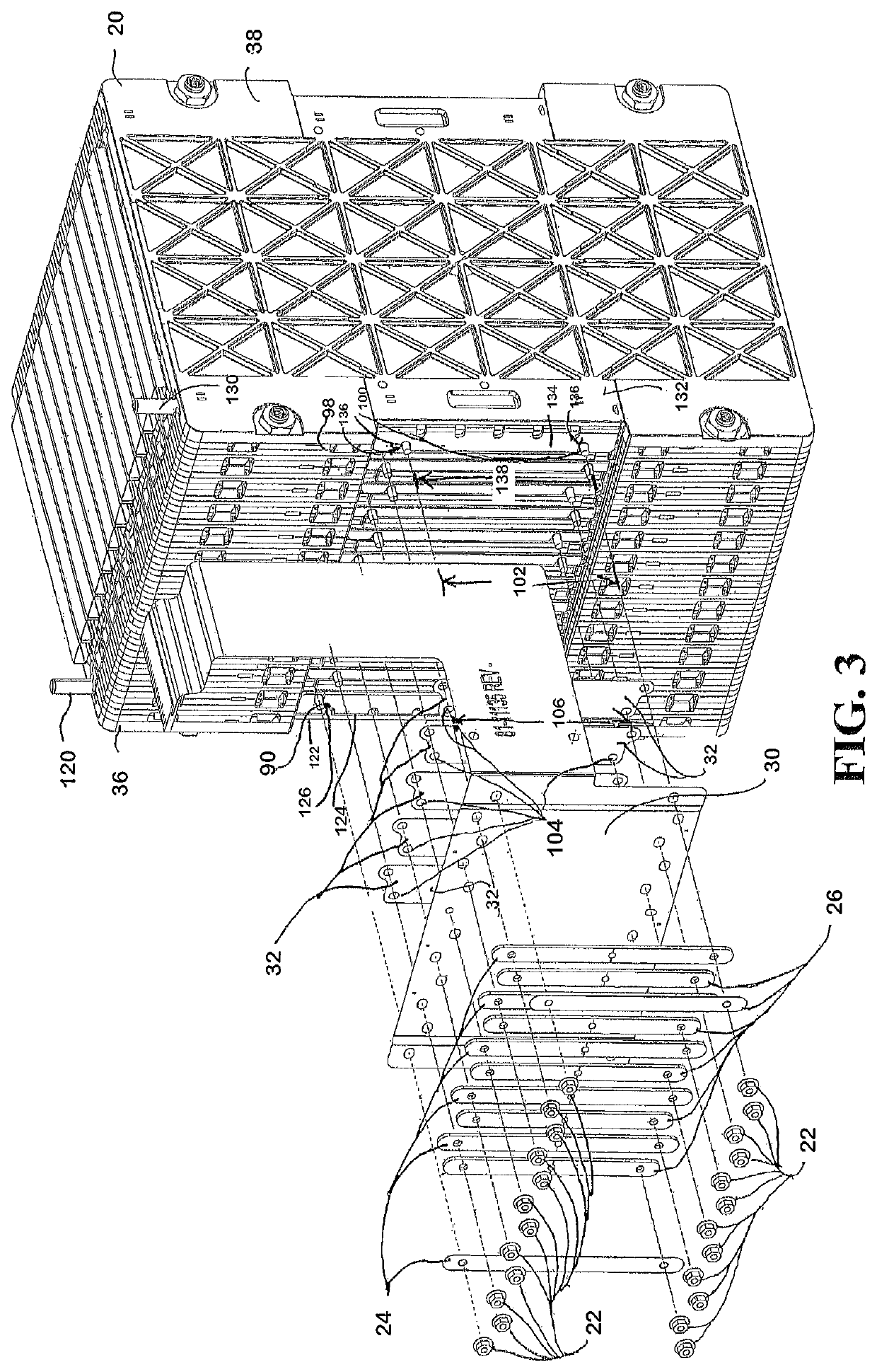Scalable battery module
a battery module and battery technology, applied in the manufacture of cell components, final product manufacturing, cell component details, etc., can solve the problems of time and labor intensive manufacturing, damage to the electrodes and packaging seals of prismatic cells, and inability to manufacture friendly, etc., to achieve the effect of improving packaging characteristics
- Summary
- Abstract
- Description
- Claims
- Application Information
AI Technical Summary
Benefits of technology
Problems solved by technology
Method used
Image
Examples
Embodiment Construction
[0039]Referring to the Figures, wherein like numerals indicate like or corresponding parts, a battery unit or pack of the present invention is adaptable to be utilized in various configurations including and not limited to a horizontally or vertically stacked battery cell packaging configuration used in an automotive vehicle applications.
[0040]Referring to FIGS. 1-12, an even P embodiment of a battery module 10 of a battery pack is illustrated. Those of ordinary skill in the art will recognize that a battery pack can be formed by electrically coupling multiple battery modules 10 in series, parallel or series / parallel combinations. The battery module 10 includes two side shields 12, tape filament 14, a battery sub-assembly module 16 and an interim dual row 2.54 clip 18. As shown, for example, in FIGS. 1-3, the battery sub-assembly module 16 includes battery sub-assembly 20, a plurality of washer nuts 22, a plurality of positive stud cell tab compression bars 24, a plurality of negati...
PUM
| Property | Measurement | Unit |
|---|---|---|
| temperature | aaaaa | aaaaa |
| temperature | aaaaa | aaaaa |
| angle | aaaaa | aaaaa |
Abstract
Description
Claims
Application Information
 Login to View More
Login to View More - R&D
- Intellectual Property
- Life Sciences
- Materials
- Tech Scout
- Unparalleled Data Quality
- Higher Quality Content
- 60% Fewer Hallucinations
Browse by: Latest US Patents, China's latest patents, Technical Efficacy Thesaurus, Application Domain, Technology Topic, Popular Technical Reports.
© 2025 PatSnap. All rights reserved.Legal|Privacy policy|Modern Slavery Act Transparency Statement|Sitemap|About US| Contact US: help@patsnap.com



